Guidelines to Self-Care
Navigating the Teeter Totter of Self-Worth
The diet, food, fitness and beauty industries are BIG industries driven by greed. Their aim is not actually to help you live your best life, but rather to generate profits for themselves. These industries market to, and deepen, the insecurities we’re conditioned to have related to our body image, aging, and more. While they promise “results”, they also continue to lure you in, spending more money.
It never really solves the core pain of feeling inadequate or broken or unworthy. These industries can’t help you with this.
The Teeter Totter is going to be continually wobbly if allow ourselves to be pressured and pulled into what these big industries are selling.
But, FREEDOM from this ever out-of-balance, out-of-control experience is possible. In this handout, you’ll learn what to focus on to stabilize yourself.Your CORE SELF-WORTH is available to you. When you’re centered in this inner worthiness, the choices you make, come from a place of personal power. Download handout to learn more!
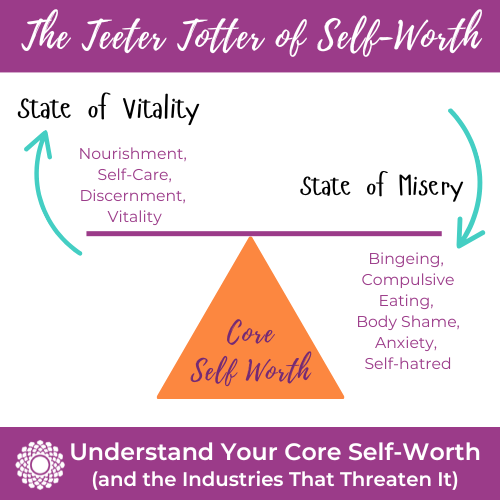
Ounces on the See Saw: The Micro Adjustments of Vitality

There are small and large things we could be doing everyday to support our well-being, to create vital health, and to thrive rather than just survive. These things may be substance related, but they are also thought, behavior, and action-related.
When we try to adjust our lives in the direction of greater health and happiness, making incremental shifts will more likely lead to lasting behavior change, to behaviors that become your new normal.
This guide will walk you through several reflective prompts to clarify your intentions for what you need to do less and more of to increase vitality, equanimity and serenity in daily life.
Through a process of sculpting and inquiry you will create specific action items to follow through on. With this, you’ll be moving towards change while also demonstrating to yourself your accountability, your worth, and your investment in going in the direction of your health
Relationships over the Holidays
Inevitably, holidays stir relationships. In this guide, you’ll find simple suggestions to interrupt exhaustive behavior patterns to set you free from overwhelm and the tendency to revert to old relational dynamics.We’ll focus on two yoga-inspired tools for navigating this, sometimes tricky, terrain:
- Acknowledge the Humanity in Others
- Set Clear Boundaries to Protect & Nourish your Wisest Self
Spending time with others can be nourishing and meaningful; but it can also feel stressful and draining. Put these suggestions into practice and empower yourself to say “YES” to your personal sovereignty. When you know your limits and speak up with direction and clarity, you’ll give yourself the gift of tender care and inspire other’s to do the same.

The "Sea of Needs", How to Prioritize your Own Needs
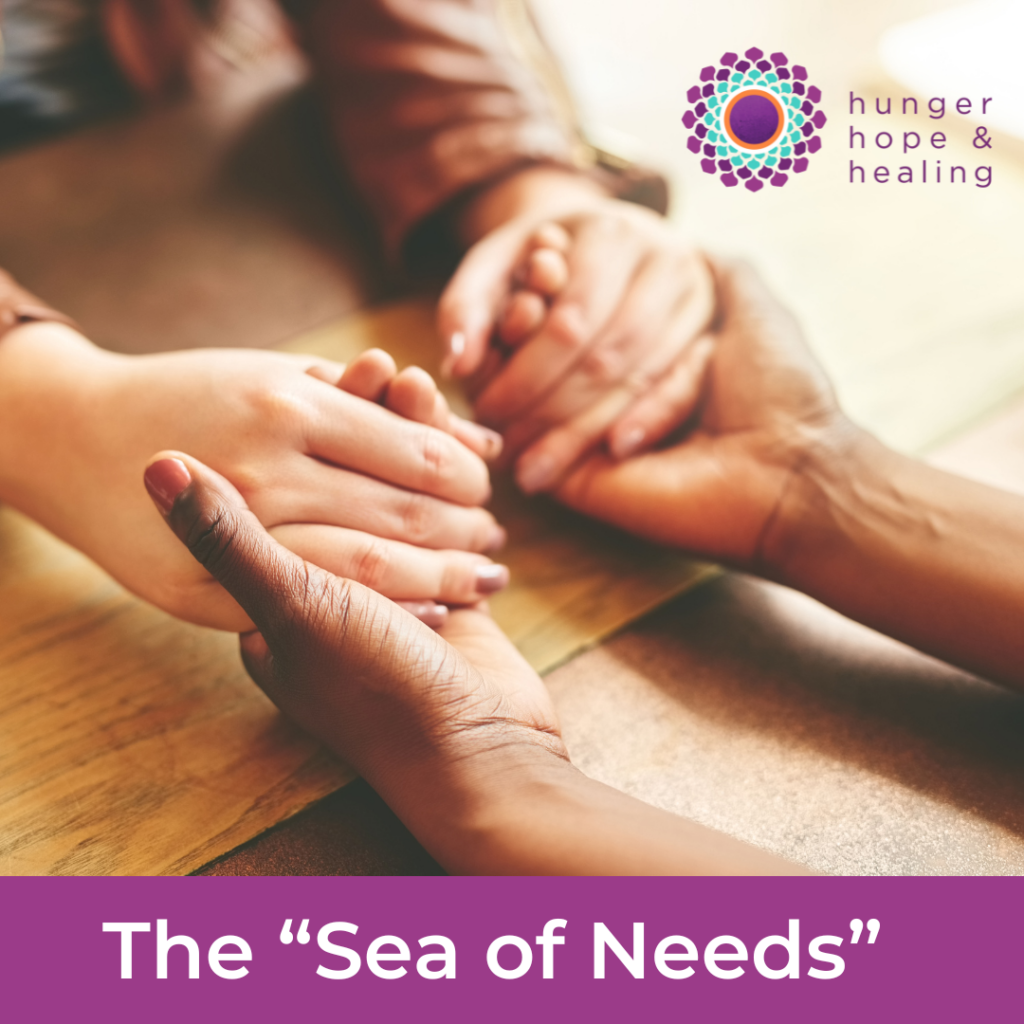
When we’ve had trouble identifying things like appetite, satiation, hunger, craving, feelings, emotions, or personal boundaries, we’ve likely struggled with identifying our needs. Ways this may present include:
- We may put others needs ahead of our own.
- We may be good at “need denying” behaviors.
- We may support our friends, work mates, even people who are learning from us, to create healthy ways to meet their needs. We support them to rest when tired, stop when done, take time off when sick, eat when hungry, and so on. Yet we may find this difficult to do for ourselves.
- We may reserve our needs for “later”. Yet, the postponement often doesn’t end. Until In this handout, I will walk you through how to understand your inner needs and how to make healthier choices when it comes to navigating your needs, amidst the sea of needs that flood in from others. You do not need to keep living with the banner of putting everyone else’s needs ahead of your own. Identifying your inner needs is an important step in disengaging with patterns that were created a long time ago and seem impossible to change. find ourselves in behaviors we would rather not be doing anymore, such as bingeing.
Many women over the decades have shared how tormenting and taunting their inner critical voice can be. They often refer to it as their inner critic. And, frequently, we assume that it’s there to stay. There’s also an assumption that this inner voice is somehow helpful or accurate or has something meaningful to offer. But, this is worth questioning!
It can be hard to imagine walking through life without the incessant intrusion of an inner critic. But, it is possible!! You can learn to be on your own team. To develop a voice of Self-Kindness.
In this handout, I will walk you through how to update your Inner Critic, including how to push back when necessary and how to REWRITE a whole new inner dialogue. One based in Self-Kindness for your inner voice. Self-Kindness is not a synonym for being fake or passive or fluffy. It’s a real practice with tactical things you can do to shift out of inner criticism into inner kindness.
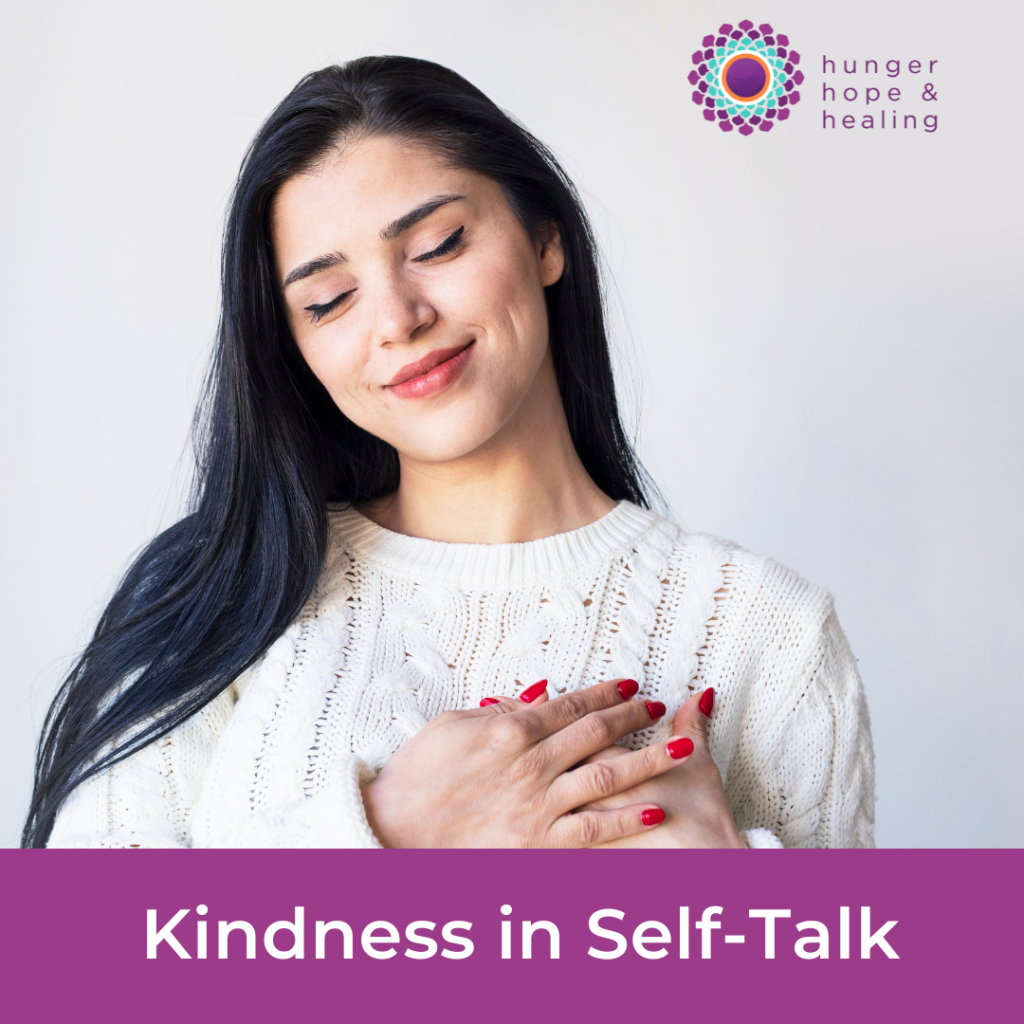
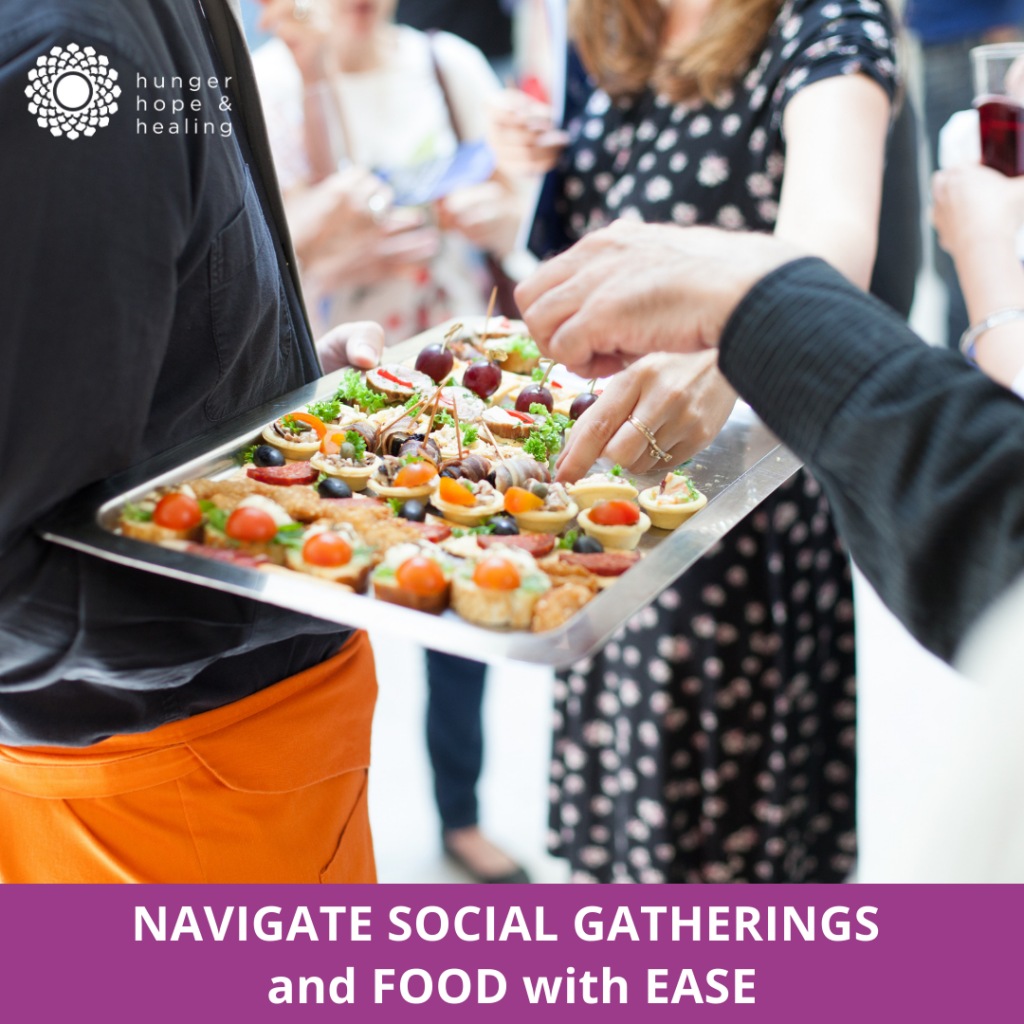
Seasons of festivity, celebration, and other social events can feel like a battleground when you’re trying to stay on track with your recovery. Between food overload, family dynamics, and the pressure to “indulge,” it can be easy to lose your footing. But what if you could approach these moments with confidence, calm, and clarity?
In this free guide, you’ll uncover strategies to navigate social events with grace, without the overwhelm. You’ll learn to:
- Plan Ahead for Success: Identify your triggers and prepare to face them with confidence.
- Master Mindfulness & Yoga Tools: Incorporate calming practices that keep anxiety at bay, so you’re grounded in the present moment.
- Create Boundaries: Develop the personal discernment to protect your peace and make empowered choices, even when the pressure’s on.
- Nourish Your Body & Mind: Practical tips for sustaining your energy and resilience, so you can show up at every gathering fully restored.
This isn’t just about “getting through” the event—it’s about thriving in it. Ready to break free from the cycle of stress and overindulgence? Download your free guide and start practicing the tools you need to navigate social gatherings with ease and inner peace.
Healthy Boundaries, Healthy Body: Guidelines for Self-Care
Did you know that the boundaries we set for ourselves—not just with others—have a profound impact on how we relate to food, our bodies, and even our emotions? Most of us focus on setting boundaries in our relationships, but healthy boundaries within ourselves are equally important for healing and recovery.
In this free guide, you’ll uncover the deep connection between setting boundaries and maintaining a balanced, vibrant body. You’ll learn:
How Boundaries Influence Your Relationship with Food: Discover the hidden ways your boundaries affect your choices around food, exercise, and emotional eating.
Self-Care Practices that Protect Your Energy: From nourishing meals to quality rest, learn how to care for your body in a way that supports your well-being.
Mindful Eating Strategies: Find out how to eat with intention, savor your food, and nourish yourself without guilt or shame.
The Power of Saying ‘No’: Understand how setting clear limits with others and yourself can actually create more space for you to thrive.
Simple Yoga Tools for Daily Self-Care: A few quick practices that you can integrate into your day to reset your energy and keep stress at bay.
This guide is not about perfection—it’s about progress and creating a compassionate, sustainable path to healing. Ready to reclaim your personal power, rebuild your self-care habits, and establish boundaries that nurture your body and mind? Download this free guide and start making choices that honor YOU.

Getting Out of the Trance of Diet-Culture Mentality
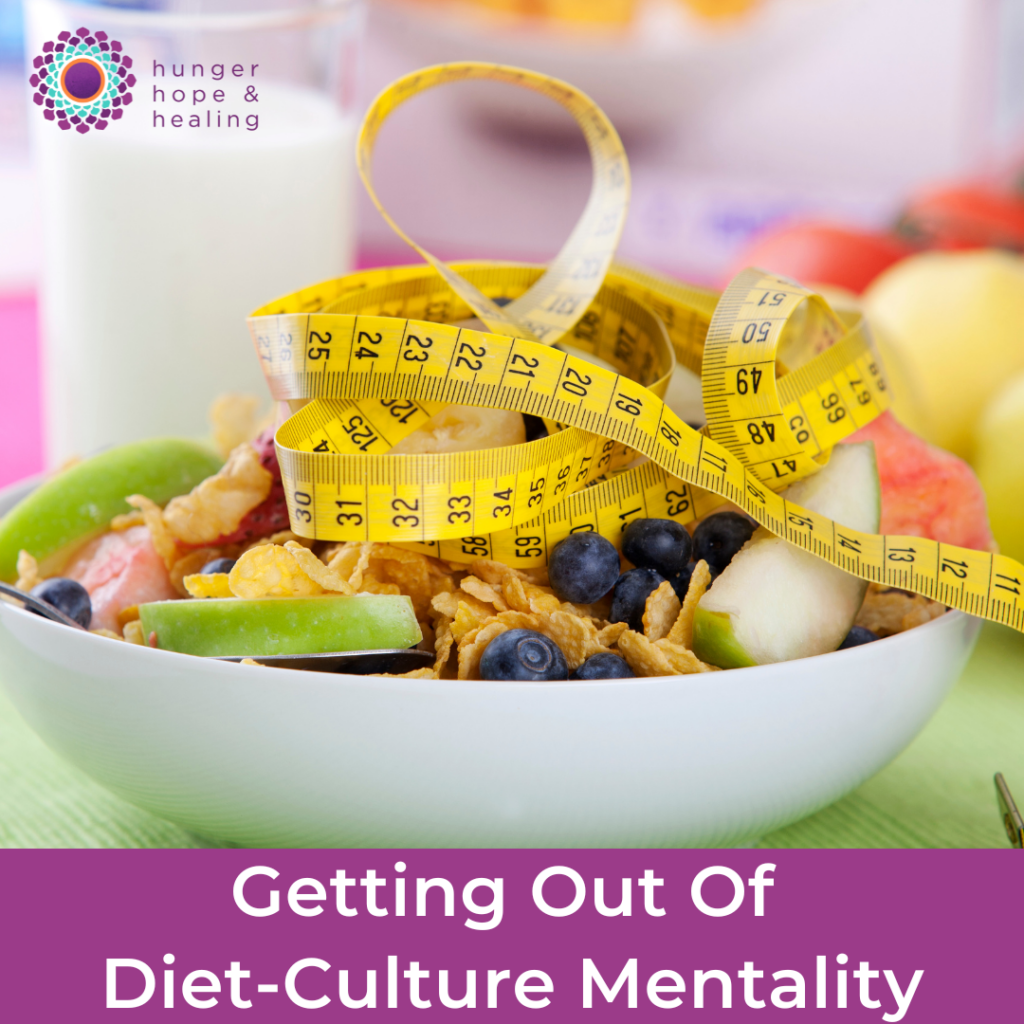
Do you feel like you’re constantly battling your body, food choices, and self-worth? Getting Out of the Trance of Diet-Culture Mentality offers you a new perspective—one that frees you from the suffocating grip of diet rules and the fear they instill. This guide dives into the cultural conditioning that leads us to equate our worth with our weight and food choices, teaching you how to break free from these ingrained beliefs. Through mindfulness and self-awareness, you’ll learn how to reframe your relationship with food, exercise, and your body, ultimately stepping into a life of true self-empowerment.
Key Takeaways from This Guide:
- Understanding Diet Culture’s Grip: Recognize how cultural conditioning leads us to measure our worth by our weight, food choices, and appearance.
- The “Good vs. Bad” Food Myth: Learn why labeling foods as “good” or “bad” is harmful and how to approach food without guilt or restriction.
- The GAP Practice: Discover the Get in the GAP technique to break free from ruminative, compulsive thinking and find peace in the present moment.
- Mindfulness for Freedom: Gain tools for grounding, attention, and presence that help you reclaim control over your mind and body from diet mentality.
- Redefining Control: Shift from striving for perfection and control to cultivating leadership over your thoughts, actions, and relationship with your body.
- True Belonging: Explore how to find belonging within yourself, not through dieting or body control, but through acceptance, self-love, and intuitive living.
This resource is not another restrictive diet plan or set of rules. Instead, it’s a holistic approach that invites you to shift from fear-based thinking to self-compassion and clarity. If you’re ready for a complete reframe and to step away from the diet culture trance, this guide will empower you to create lasting change from within.
